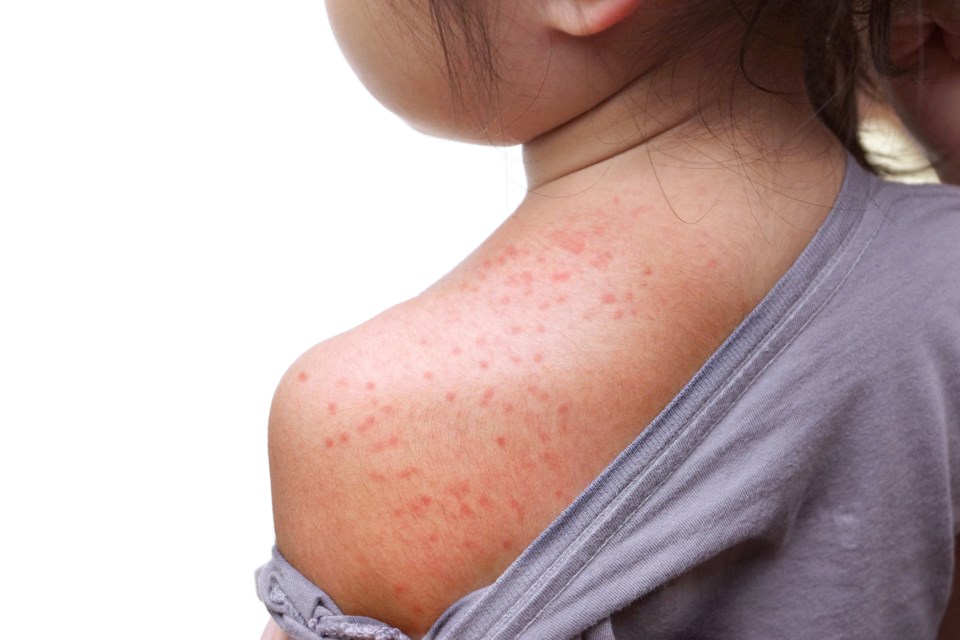As cases continue to climb, Guelph and Wellington County have been deemed high risk for measles.
As of May 7, there were 63 confirmed and probable cases within Wellington-Dufferin-Guelph, and 1,440 cases province-wide. That includes 101 hospitalizations and 31 cases involving pregnant people.
To curb the spread, public health is encouraging individuals to ensure they have had two doses of the measles vaccine and if not, to get it as soon as possible.
During Wednesday’s board of health meeting, Medical Officer of Health Dr. Nicola Mercer noted more than 75 per cent of cases across the province are in children 17 or younger – most of them on the younger side.
“The vast majority of cases are individuals who are not vaccinated. For most of those individuals, they have made a choice to be vaccinated. The children may have not made that choice, but their parents did. So that is quite concerning,” she said
Public health recently finished its Immunization of School Pupils Act campaign, which requires students age seven or older to have certain vaccinations to attend school.
Under ISPA, 94 per cent of children aged seven and up in the region have two doses of the measles vaccine. That drops to 65.5 per cent for students in junior kindergarten.
Normally, that means children aged five or six, for instance, won’t get a reminder to get vaccinated because they don’t fall into the legislation. But the agency sent out letters to parents of children aged four, five and six with the rise of measles, and saw a substantial increase in immunizations.
“Ideally, we need 95 per cent to prevent the spread of measles within schools,” she said.
About 6.5 per cent of parents in WDG schools have chosen not to vaccinate their children.
“The majority of those reasons are not religious. We have some medical exemptions on file, but those are very few,” she said. “The vast majority of people who choose not to vaccinate their children are individuals who have… different belief structures.”
“I know some people say to just provide them with the science and they will vaccinate their children. They are well aware. They choose not to believe it,” she said.
Mercer noted a significant concern is that measles isn’t benign, and can lead to long-term health impacts, especially in children and infants.
“This is a disease that affects the central nervous system; the eyes, ears and brain,” she said. “It can cause permanent deafness. It can cause visual problems. It can cause neurological problems.”
Public health is now recommending children six months and over get a measles vaccine. If they are over the age of 12 months and have already had one dose, parents are encouraged to get a second one (as long as four weeks have passed from the last one).
If you were born in 1970 or after, you’re encouraged to ensure you have two doses of the measles vaccine. If you were born before then, you’ve likely had it already and are naturally immune.
Recent exposures include a Guelph pharmacy and two Erin schools.




